Happy 106th Bday to the Greatest CEO You’ve Never Heard Of
She changed the world by focusing on what was right in front of her
Welcome to Range Widely, where I help you step outside your lane for a few minutes each week.
The last post was the most popular one yet, and RW has a few new subscribers. For those of you who want to know what this newsletter is all about, check out the intro post.
And if you're stopping by for the first time, you can subscribe here:
I’m kind of in love with a 106-year-old.
The sort of friend-love in which being around her makes me want to be better and do better things. As I’ll explain below, her influence recently led me to join the board of an early childhood care and education center. But first: please meet Frances Hesselbein, who turned 106 earlier this month, (and who still goes into the office in Manhattan to run the Frances Hesselbein Leadership Institute).
Frances took her first professional job at the age of 54, and went on to become the CEO of the Girl Scouts — which she saved. In the late 1960s and early 1970s, society changed dramatically, but the Girl Scouts did not. Girls were preparing for college and careers in unprecedented numbers, and they needed information on thorny topics like sex and drugs. The organization was in existential crisis. Membership fell off a cliff. The CEO position went vacant for nearly a year.
Frances took over the position in 1976 and transformed the organization. She tossed the sacrosanct standard handbook and replaced it with four handbooks that targeted different ages. She hired artists and told them that a six‑year‑old indigenous girl near an ice floe in Alaska who flips through a handbook had better see someone who looks like her in a Girl Scout uniform. She commissioned research on messaging to invite girls of all backgrounds. It culminated in poetic marketing posters, like one targeting Native Americans which read: “Your names are on the rivers.”
She presided over a tripling of minority membership. Under her watch, membership overall grew by a quarter million, and the Girl Scouts added 130,000 volunteers — people paid in a sense of mission, not money. The cookie business became a $300 million operation and kept growing from there. New merit badges reflected topical activities — like the one below: binary code, for girls learning about computers.
In 1990, Frances retired from the Girl Scouts. Revered management expert Peter Drucker proclaimed her the best CEO in the country. “She could manage any company in America,” he said. Months later, the CEO of General Motors retired. When Business Week asked Drucker who the next head of GM should be, he told them, “I would pick Frances.”
Circular Management
Her predecessors as Girls Scouts CEO had ridiculous leadership qualifications. The previous CEO, Dr. Cecily Cannan Selby, went to Radcliffe College at 16, got a PhD from MIT, and applied wartime technology to the study of human cells. She held leadership positions in education and industry. Another former CEO, Captain Dorothy Stratton, had been a psychology professor, a university dean, founding director of the U.S. Coast Guard Women’s Reserve, and the first personnel director at the International Monetary Fund. Frances, meanwhile, had one semester of junior college education (she dropped out to take care of her family when her father passed away), and — after years of community volunteering and doing odd jobs in her husband’s photography business — had been head of a local Girl Scout council.
I’m speculating, but I think her background may actually have helped Frances. She was keenly aware that she couldn’t magically contain all the knowledge it would take to turn around the organization. As soon as she arrived, she leveled the hierarchical leadership structure in favor of what she called “circular management.” Rather than rungs on a ladder, staff at all levels would be beads on concentric bracelets, with multiple contacts who could advance ideas from local councils toward the national decision makers at the center.
In doing that, Frances effectively differentiated the chain of communication from the chain of command — an important quality of adaptable organizations that I featured last month. She started learning tough lessons; for example, some campgrounds — which staff and volunteers had adored from their youth — were no longer getting much use and had to go.
Doing What's Needed at the Time
My first interview with Frances was just after her 101st birthday, at her office. I knew that my time would be limited because, ya know, CEOs and generals vie for her attention (Defense Secretary Austin is a friend) — and those esteemed visitors tend to peek their heads in the door if a meeting runs over. So I anxiously jumped right in and asked her what training had prepared her for leadership. Wrong question.
She waved a dismissing hand and said, “Oh, don’t ask me what my training was.” She explained that rather than fitting the trope of a visionary looking to the sky, she was focused on the ground right in front of her, doing whatever seemed like it would be of service in the moment. “I did not intend to become a leader,” she told me. “I just learned by doing what was needed at the time.”
And when she said needed, she really meant it. She never intended to leave the mountains of western Pennsylvania, and she turned down most of her important jobs at least once. When a neighbor first asked her to lead a local Girl Scout troop, she declined—until she learned she was the last hope: either she would step in, or the group of ten-year-old girls from modest families who met in a church basement would just have to be disbanded. She agreed to stand in for six weeks, but ended up staying until the girls graduated high school.
When she was asked by local business leaders to become executive director of the local Girl Scouts council, she declined. A previous leader had left the council in serious financial trouble; one of the business leaders making the ask was on the United Way board, and said that if Frances didn’t take the job and straighten out the finances, the Girl Scouts would lose the United Way partnership. She agreed to fill in for a few months — and, again, ended up staying.
When she was invited to interview for the CEO role, she declined. But her husband countered. He said that if she wanted to decline the job, he’d drive her to New York City, and she would decline in person. So the pattern repeated: in the interview, she realized there was great need, and she answered the call.
What She Means to Me
Frances has meant a lot to a lot of people. She never did graduate from college, but twenty-three honorary doctorates festoon her office. (Plus a sweet saber from the U.S. Military Academy for teaching leadership courses.) She also has a Presidential Medal of Freedom, the highest civilian honor in the U.S. When President Bill Clinton awarded it to her, he jokingly asked her to “come forward” to be recognized — as opposed to “come up” — because she despises hierarchical language.
But what has she meant specifically to me? I tell her story at much more length in Range, but I want to share a line that she has on repeat:
Leadership is a matter of how to be, not what to do.
I mentioned at the top of this post that being around her made me want to be better. I interviewed Frances a number of times, and I got to spend time with her outside of the formal interview situation. It afforded me the opportunity to see that she treated every person she encountered with the same dignity as an Army general.
Once, when we went to lunch at a cafe, a customer in front of us was rude to the server. When Frances’s turn came, she pointed out (quite publicly) all the great things the server was doing even amid the stress-inducing lunch rush hour. I think it instantly restored that person’s day — and rest assured that the next person in line was on their best behavior. I think it’s hard to see comportment like that up close and not think: “I want to be like that!”
Frances’s contagious goodwill made an immediate impression on me. But her “doing what’s needed at the time” had to marinate for a little longer.
When I was much younger, I tended to think only global efforts were really important. Like, why change your neighborhood when you can change the world? In high school, I had a girlfriend who wanted to be a doctor, and I remember asking why she’d do that instead of being, say, the person who makes policy for all the doctors.
Even as I became (moderately) more mature and began to volunteer for things, I tended to volunteer with national efforts, probably implicitly thinking them superior to local efforts. Well, friends, turns out that “global” is made up of a bunch of locals; you can be the most important person in your neighbor’s life on a day when you provide the help they need. And maybe (definitely) that's trite to say; but sometimes, amid the grandiose organizational mission statements I encounter on a daily basis, I feel like I need a reminder.
So, in the spirit of Frances doing what was needed right in front of her nose, I decided recently to join the board of directors of Jubilee JumpStart. It’s more than a daycare; it’s a local early childhood education center for kids and families. It’s amazing. They teach parenting skills, and have grocery days where healthy, staple foods are brought in for families to take at pickup time. I happen to be a JJS parent too, but most families there are low-income, and about 80% of the kids have fully subsidized tuition. I’ve had ongoing involvement with national (and international) nonprofits, but never one with a local focus. Right now, I’m excited to do a little work on what’s needed at the time, and right in front of me.
And as Frances once told me — with a grin, and right after she turned 104: “Who knows what’s next?”
Thank you for reading. Hope you’ll join me next week.
David
P.S. I would love for Frances's example to be more well known, so if you enjoyed this newsletter, please share it. You can find it, and all other posts, here. And anyone can subscribe for free here:
Finally, for more widely ranging thoughts throughout the week, you can follow me on Instagram or Twitter.





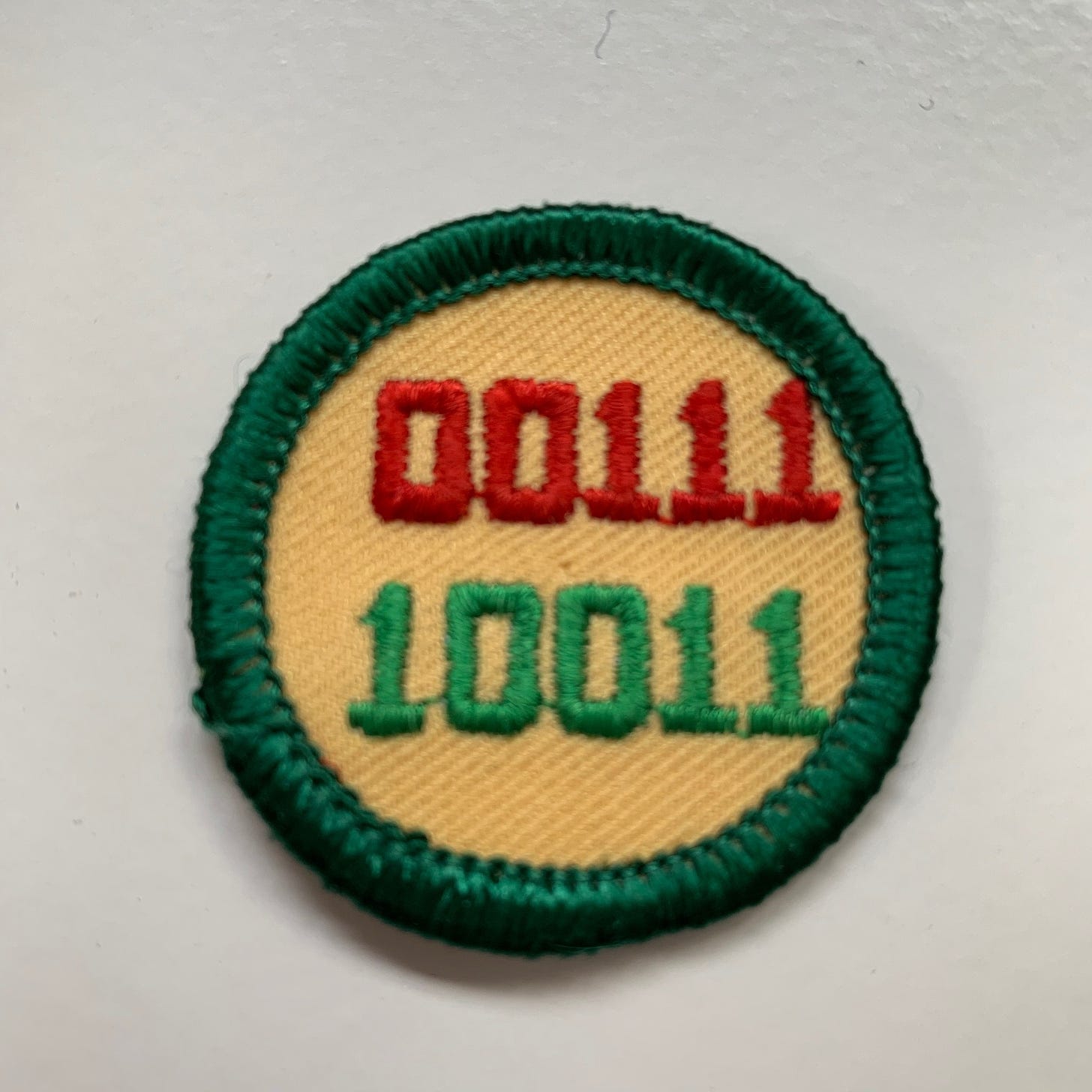
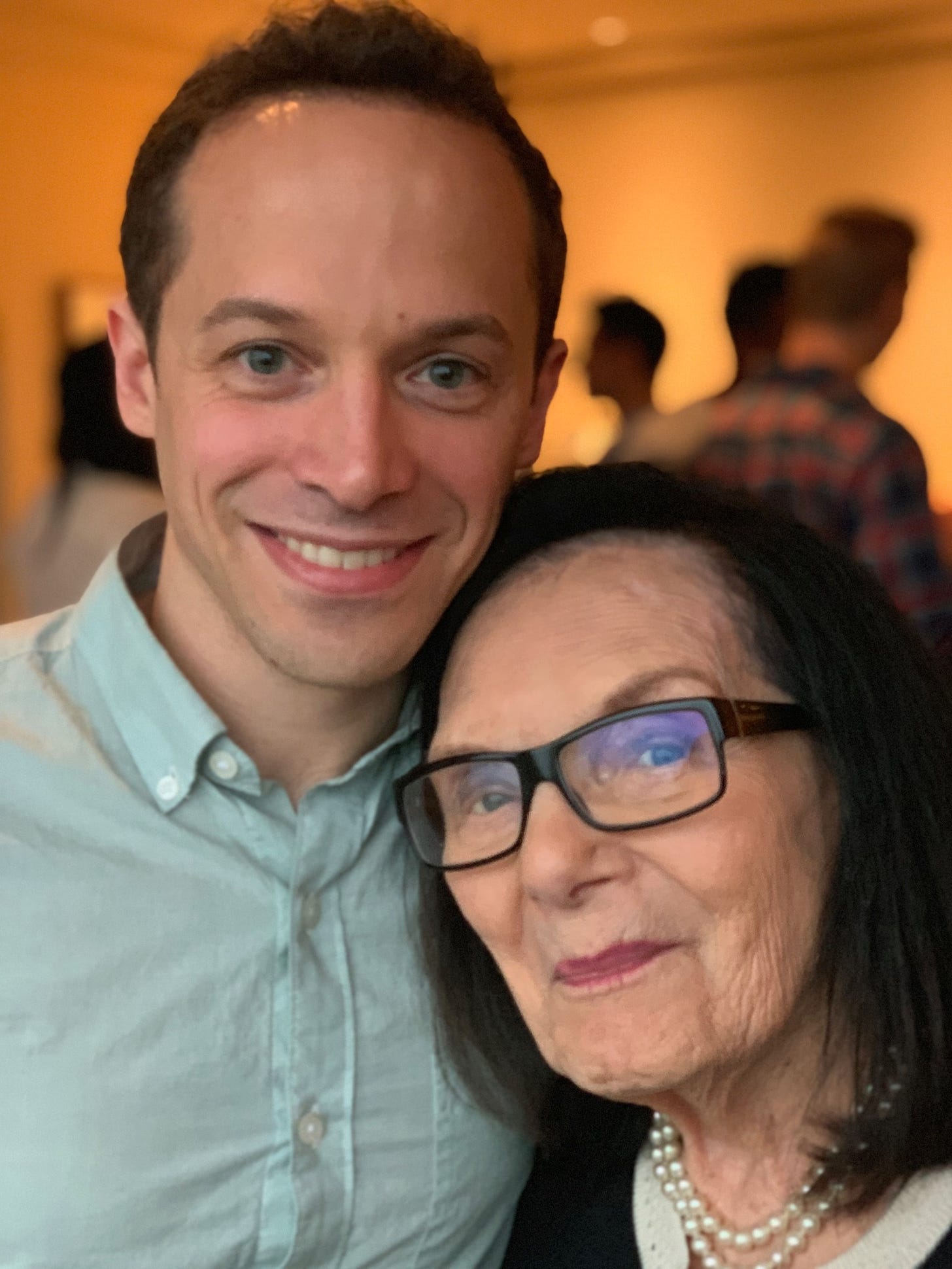
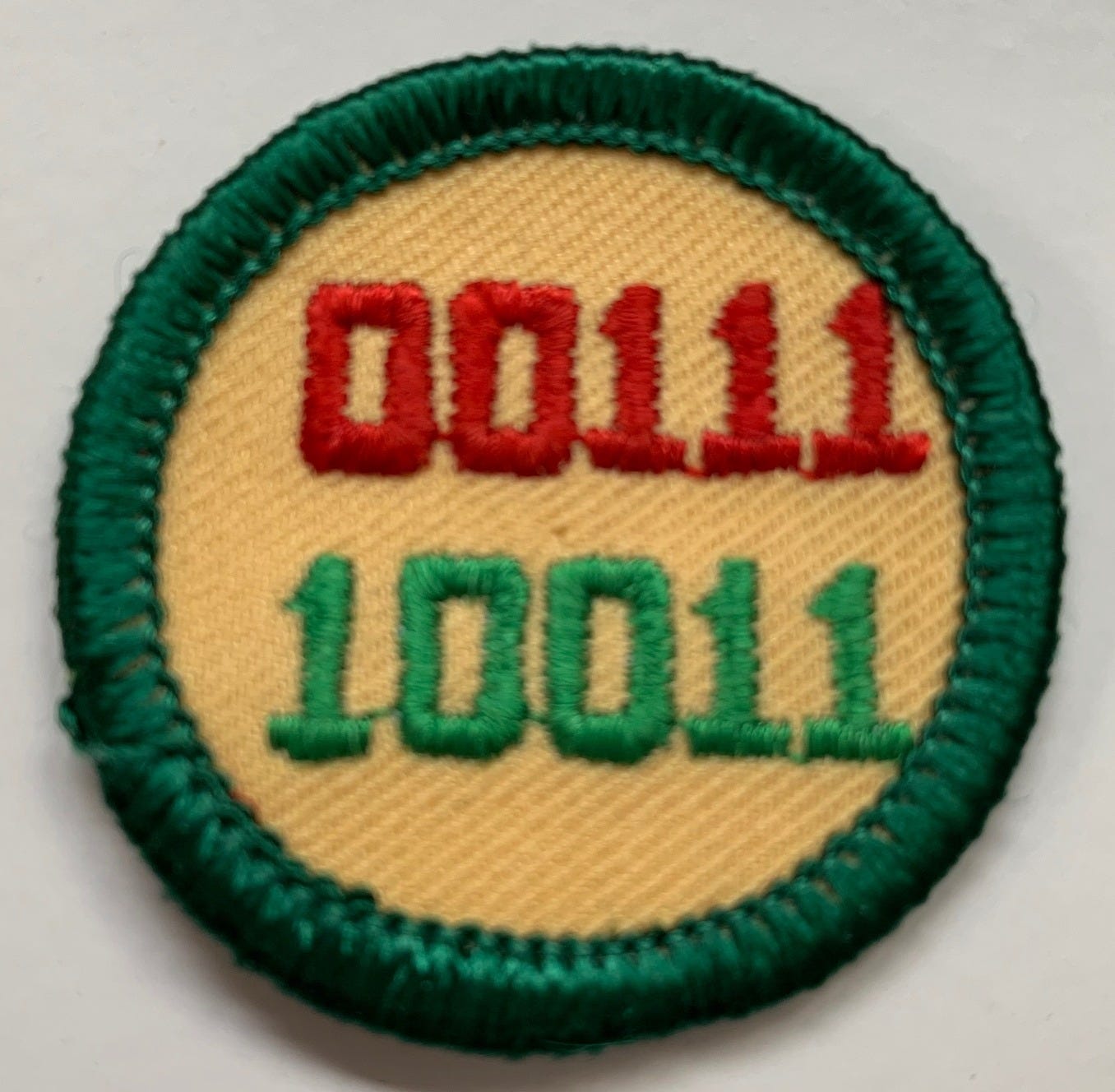
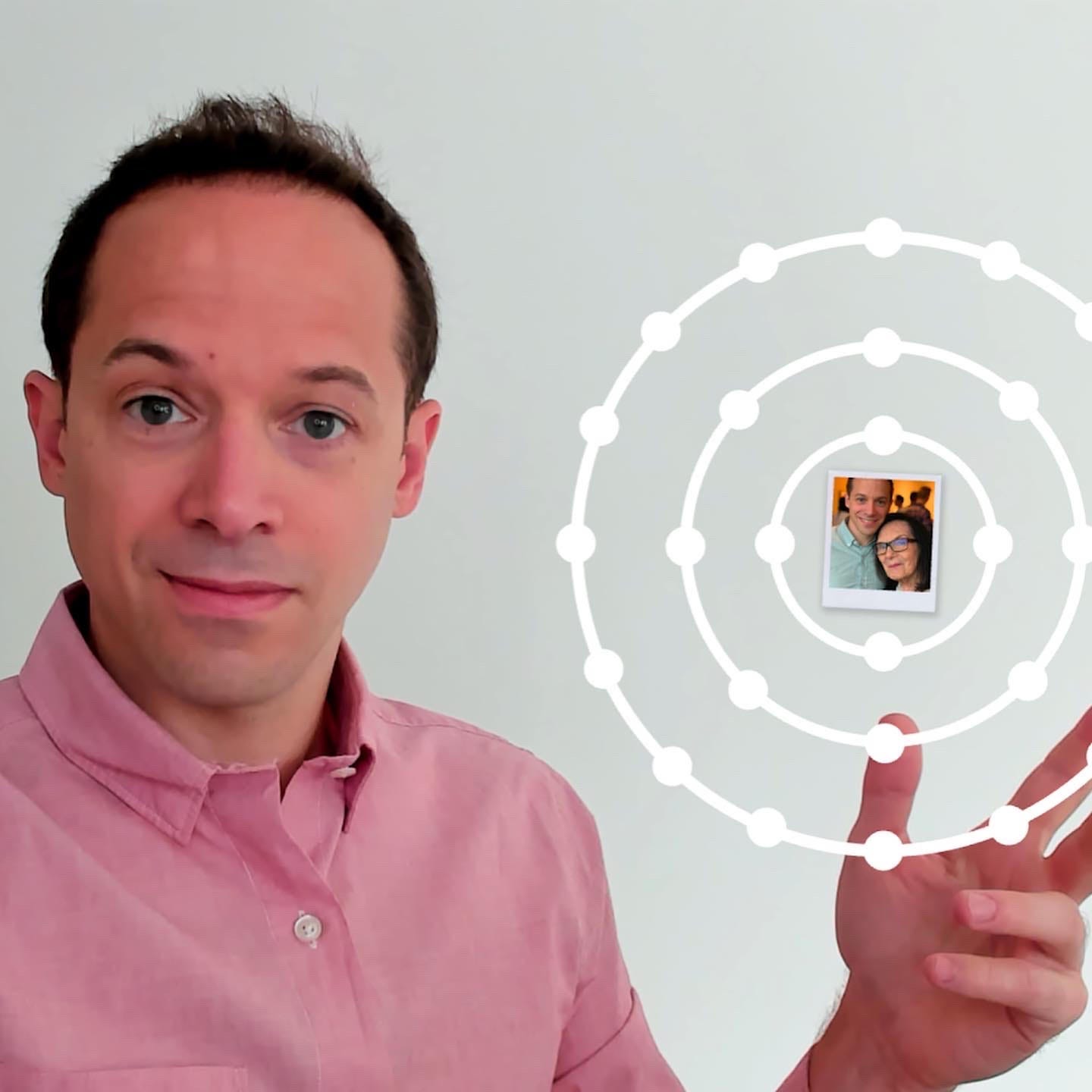
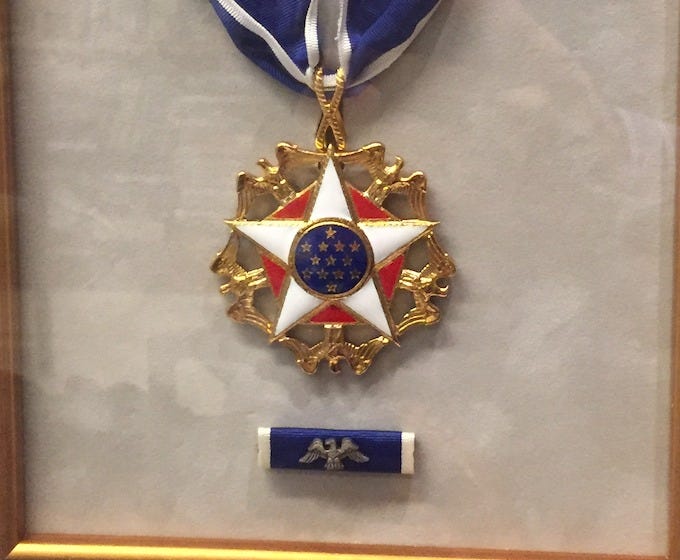
Amazing story. Thank you for sharing it :)